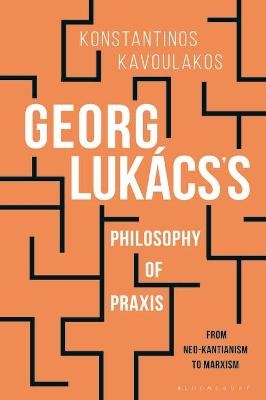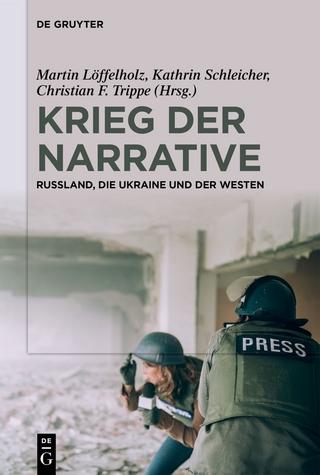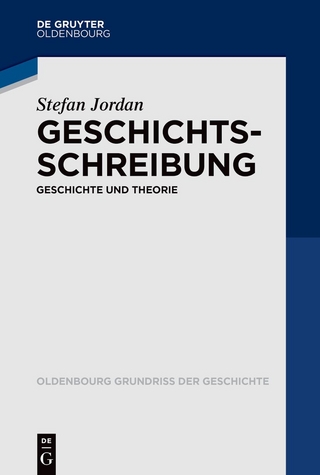
Georg Lukács’s Philosophy of Praxis
From Neo-Kantianism to Marxism
Seiten
2020
Bloomsbury Academic (Verlag)
978-1-350-15528-2 (ISBN)
Bloomsbury Academic (Verlag)
978-1-350-15528-2 (ISBN)
Georg Lukács’ early Marxist philosophy of the 1920s laid the foundations of Critical Theory. However the evaluation of Lukács’ philosophical contribution has been largely determined by one-sided readings of eminent theorists like Adorno, Habermas, Honneth or even Lukács himself. This book offers a new reconstruction of Lukács’ early Marxist work, capable of restoring its dialectical complexity by highlighting its roots in his neo-Kantian, 'pre-Marxist' period.
In his pre-Marxist work Lukács sought to articulate a critique of formalism from the standpoint of a dubious mystical ethics of revolutionary praxis. Consequently, Lukács discovered a more coherent and realistic answer to his philosophical dilemmas in Marxism. At the same time, he retained his neo-Kantian reservations about idealist dialectics. In his reading of historical materialism he combined non-idealist, non-systematic historical dialectics with an emphasis on conscious, collective, transformative praxis. Reformulated in this way Lukács’ classical argument plays a central role within a radical Critical Theory.
In his pre-Marxist work Lukács sought to articulate a critique of formalism from the standpoint of a dubious mystical ethics of revolutionary praxis. Consequently, Lukács discovered a more coherent and realistic answer to his philosophical dilemmas in Marxism. At the same time, he retained his neo-Kantian reservations about idealist dialectics. In his reading of historical materialism he combined non-idealist, non-systematic historical dialectics with an emphasis on conscious, collective, transformative praxis. Reformulated in this way Lukács’ classical argument plays a central role within a radical Critical Theory.
Konstantinos Kavoulakos is associate professor of Social and Political Philosophy/Philosophy of Culture at the University of Crete, Greece.
Acknowledgments
Abbreviations
Preface by Andrew Feenberg
1. Introduction: The Need to Reconsider Lukács’ Philosophy of Praxis
First Part: Method
2. The Problem of Content: a Neo-Kantian Theme
3. Flawed Philosophical Alternatives
4. Lukács’ Materialist Theory of History
Second Part: Theory
5. The Origins of the Concept of Reification in Lukács’ Early Work
6. The Modern Form of Objectivity
7. What is Reification?
Third Part: Praxis
8. From Mystical Ethics to Transformative Praxis
9. De-reifying Capitalism
10. Limits of De-reification
11. Epilogue: The Significance of Lukács’s Philosophy of Praxis Today
References
Index
| Erscheinungsdatum | 20.03.2020 |
|---|---|
| Vorwort | Andrew Feenberg |
| Verlagsort | London |
| Sprache | englisch |
| Maße | 156 x 234 mm |
| Gewicht | 376 g |
| Themenwelt | Geisteswissenschaften ► Geschichte ► Geschichtstheorie / Historik |
| Geisteswissenschaften ► Philosophie ► Geschichte der Philosophie | |
| Geisteswissenschaften ► Philosophie ► Philosophie der Neuzeit | |
| ISBN-10 | 1-350-15528-4 / 1350155284 |
| ISBN-13 | 978-1-350-15528-2 / 9781350155282 |
| Zustand | Neuware |
| Informationen gemäß Produktsicherheitsverordnung (GPSR) | |
| Haben Sie eine Frage zum Produkt? |
Mehr entdecken
aus dem Bereich
aus dem Bereich
Russland, die Ukraine und der Westen
Buch | Softcover (2024)
De Gruyter (Verlag)
CHF 55,90
wie Irritationen historisches Denken anregen
Buch | Softcover (2024)
Kohlhammer (Verlag)
CHF 96,55
Geschichte und Theorie
Buch | Softcover (2024)
De Gruyter Oldenbourg (Verlag)
CHF 34,90


